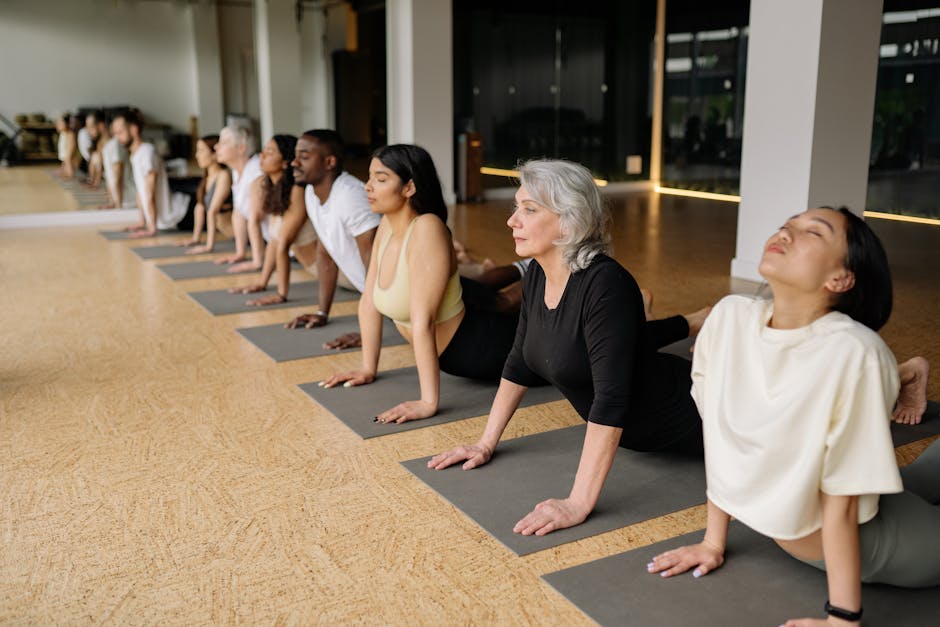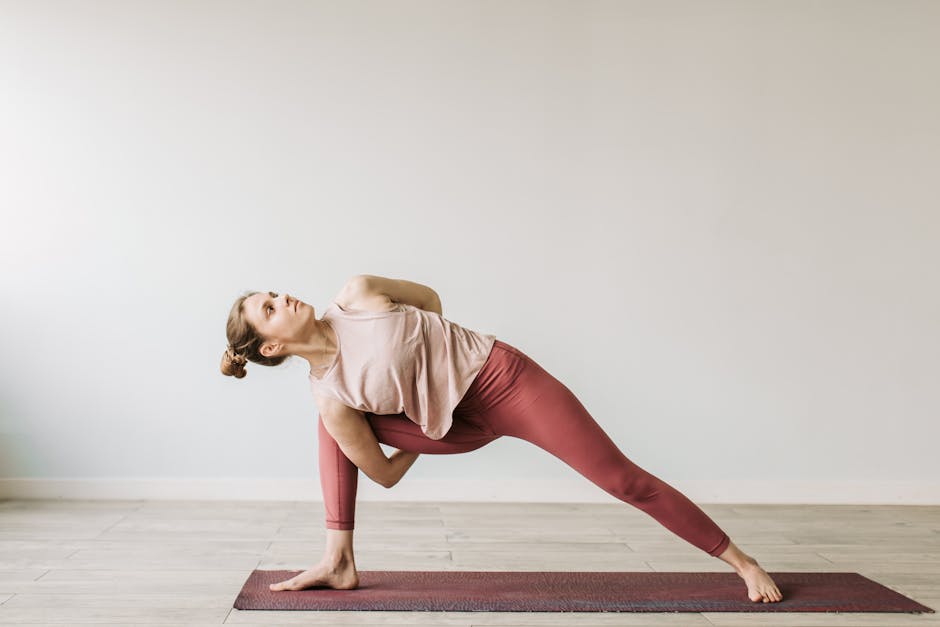How to Practice Self-Care Effectively
Self-care is a term that has gained significant popularity in recent years, but what does it really mean? More than just a buzzword, self-care is a crucial aspect of maintaining our physical, mental, and emotional well-being. In a world that is constantly demanding more from us, taking time to care for ourselves has never been more important. But how can we practice self-care effectively? In this comprehensive guide, we will explore the various dimensions of self-care, provide practical tips, and debunk common misconceptions to help you prioritize your well-being. Let’s delve into the world of self-care and discover how you can truly take care of yourself.
The Importance of Self-Care

Self-care is not selfish; it is essential. Just like we need to take care of our physical health by eating well and exercising, we also need to nurture our mental and emotional well-being. The demands of daily life, whether it’s work, relationships, or other responsibilities, can take a toll on our overall health. Without proper self-care, we risk burning out, experiencing increased stress, and compromising our immune system. By prioritizing self-care, we can improve our resilience, boost our mood, and enhance our overall quality of life.
Research has shown that self-care practices can lead to reduced anxiety and depression, improved focus and productivity, and better relationships with others. In essence, self-care is not just a luxury but a necessity for a healthy and fulfilling life. So, how can we incorporate self-care into our daily routines in a way that is effective and sustainable?
Creating a Self-Care Routine

One of the key aspects of practicing self-care effectively is establishing a routine that works for you. Just like you have a morning routine to get ready for the day, creating a self-care routine can help you set aside dedicated time for your well-being. Your self-care routine can include a variety of activities that nourish different aspects of your health, such as physical exercise, mindfulness practices, creative hobbies, and social connections.
Start by identifying activities that bring you joy, relaxation, and a sense of fulfillment. These could be simple activities like taking a walk in nature, reading a book, practicing yoga, or cooking a healthy meal. The key is to be intentional about your self-care practices and prioritize them in your daily schedule. By making self-care a non-negotiable part of your routine, you can ensure that you are consistently investing in your well-being.
Setting Boundaries

Another crucial aspect of practicing self-care effectively is setting boundaries. This means learning to say no to things that drain your energy or do not serve your well-being. Setting boundaries is not about being selfish; it’s about respecting your own needs and limitations. By setting clear boundaries with others, you can prevent burnout, reduce stress, and create space for activities that nourish you.
Boundaries can take many forms, from saying no to extra work projects that overwhelm you to setting aside time for yourself without feeling guilty. It’s important to communicate your boundaries clearly and assertively, while also respecting the boundaries of others. Remember that setting boundaries is a form of self-care, and it is essential for maintaining your overall well-being.
Practicing Mindfulness

Mindfulness is a powerful practice that can enhance your self-care routine and promote overall well-being. Mindfulness involves being fully present in the moment, without judgment or distraction. By practicing mindfulness, you can reduce stress, increase self-awareness, and cultivate a sense of inner peace.
There are many ways to incorporate mindfulness into your daily life, such as meditation, deep breathing exercises, or simply paying attention to the sensations in your body as you go about your day. By cultivating a mindfulness practice, you can become more attuned to your thoughts and emotions, which can help you make healthier choices and respond more skillfully to life’s challenges.
Physical Self-Care
Physical self-care is an essential component of overall well-being. Taking care of your body through proper nutrition, exercise, and rest is crucial for maintaining good health. Physical self-care can include activities such as going for a run, practicing yoga, getting enough sleep, and eating a balanced diet.
Regular physical activity not only improves your physical health but also has numerous mental health benefits, such as reducing anxiety and depression. Additionally, getting enough rest and fueling your body with nutritious food can help you feel more energized and focused throughout the day. Prioritizing physical self-care is a key aspect of practicing self-care effectively.
Emotional Self-Care</h
Emotional self-care involves acknowledging and honoring your emotions, as well as developing healthy coping mechanisms for dealing with stress and difficult situations. This can include activities such as journaling, talking to a therapist, practicing self-compassion, and engaging in activities that bring you joy.
It’s important to pay attention to your emotional well-being and take steps to nurture it regularly. This may involve setting aside time to reflect on your feelings, expressing your emotions in a healthy way, and seeking support from others when needed. By prioritizing your emotional self-care, you can cultivate greater resilience, self-awareness, and emotional balance.
Social Self-Care
Humans are social beings, and cultivating meaningful connections with others is essential for our well-being. Social self-care involves nurturing your relationships, setting healthy boundaries with others, and seeking out supportive communities. This can include spending time with loved ones, joining a group or club that shares your interests, or volunteering in your community.
Building strong social connections can provide you with emotional support, a sense of belonging, and opportunities for growth and learning. By prioritizing your social self-care, you can create a network of support that helps you navigate life’s challenges with greater resilience and strength.
Reflecting on Self-Care Practices
As you explore different self-care practices and incorporate them into your daily routine, it’s important to reflect on what works best for you. Not all self-care practices will resonate with everyone, so it’s essential to listen to your own needs and preferences. Keep a journal or log of your self-care activities and how they make you feel, so you can identify patterns and adjust your routine as needed.
Remember that self-care is a personal journey, and what works for one person may not work for another. Be open to trying new things, experimenting with different self-care practices, and adapting your routine based on what brings you the most joy and fulfillment. By being intentional and reflective in your self-care practices, you can create a routine that truly nourishes your mind, body, and spirit.
Common Misconceptions about Self-Care
There are many misconceptions about self-care that can prevent people from prioritizing their well-being. One common misconception is that self-care is selfish or indulgent. In reality, self-care is a necessary practice for maintaining good health and preventing burnout. By taking care of yourself, you are better able to show up for others and fulfill your responsibilities.
Another misconception is that self-care has to be expensive or time-consuming. While some self-care activities may require a financial investment or a significant time commitment, there are many simple and affordable ways to practice self-care. Whether it’s taking a few minutes to meditate in the morning or going for a walk in nature, self-care can be accessible to everyone, regardless of their circumstances.
Conclusion
In conclusion, practicing self-care effectively is essential for maintaining your overall well-being and quality of life. By prioritizing self-care, you can reduce stress, improve your mood, and enhance your resilience in the face of life’s challenges. From creating a self-care routine to setting boundaries, practicing mindfulness, and nurturing your physical, emotional, and social well-being, there are many ways to incorporate self-care into your daily life.
Remember that self-care is not a one-size-fits-all approach, and it’s important to listen to your own needs and preferences as you explore different self-care practices. By reflecting on what works best for you and being intentional in your self-care routine, you can create a practice that truly nourishes your mind, body, and spirit. So, take the time to care for yourself, because you deserve it.




